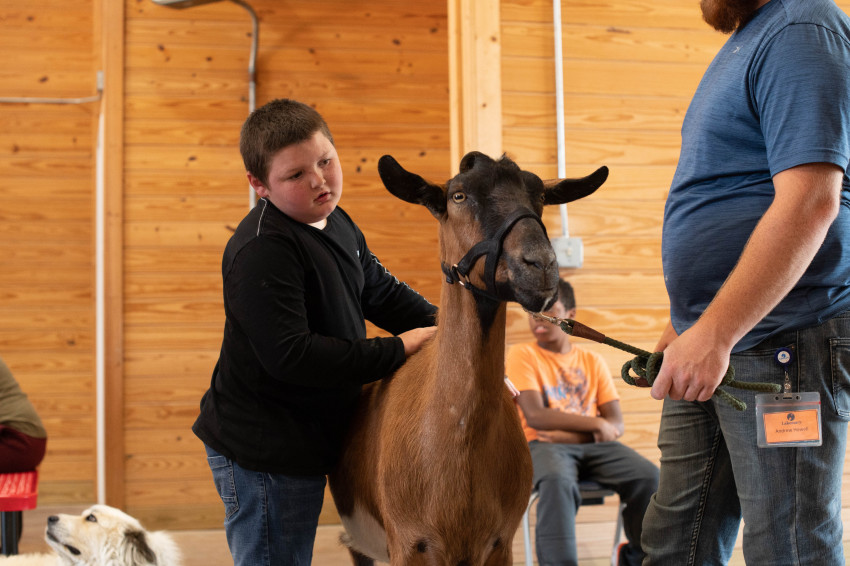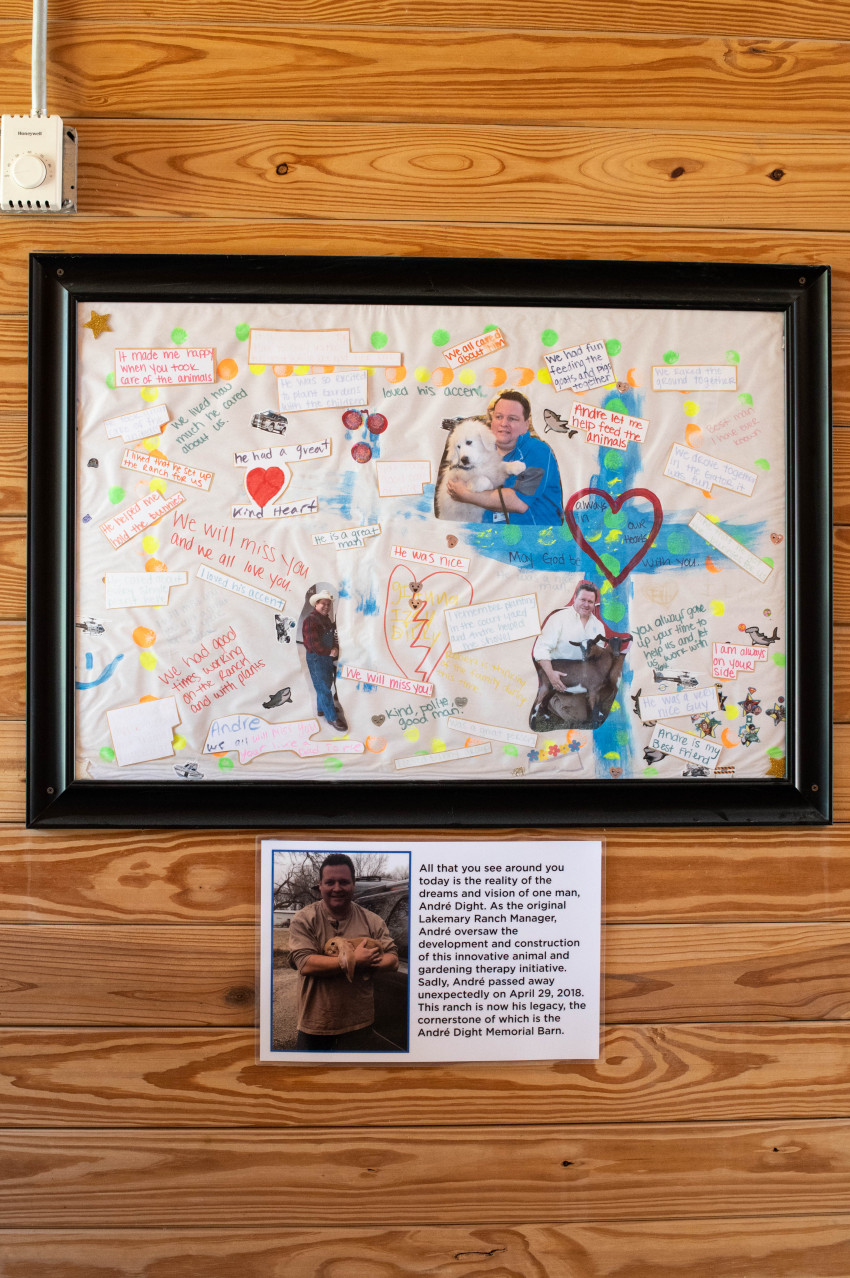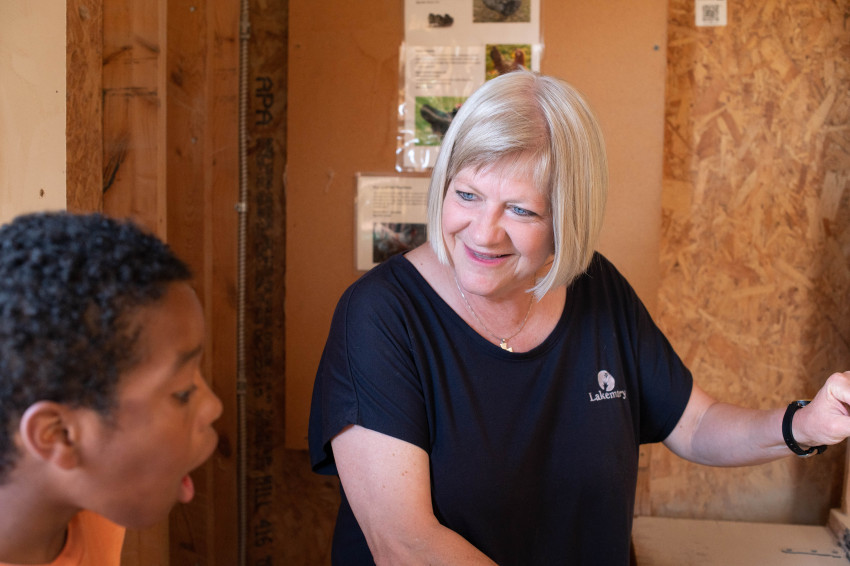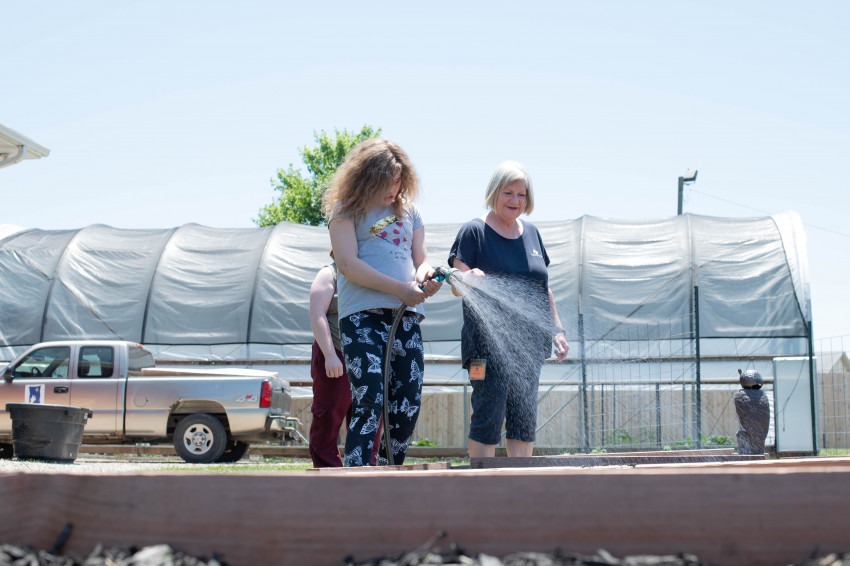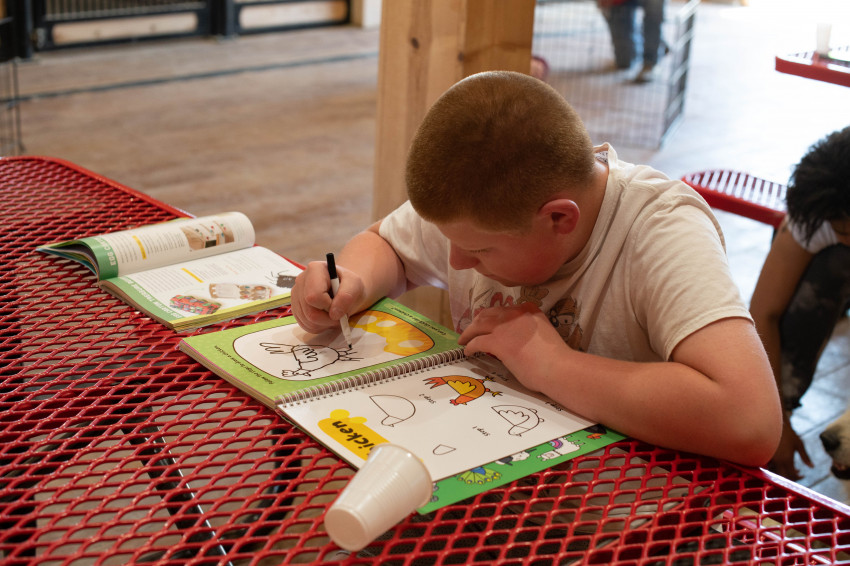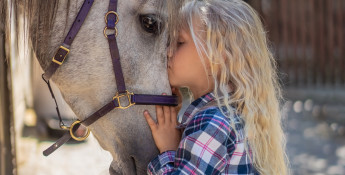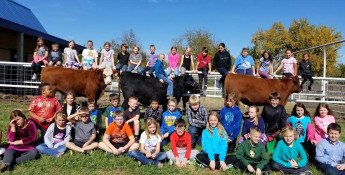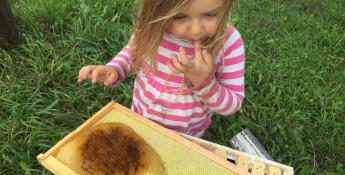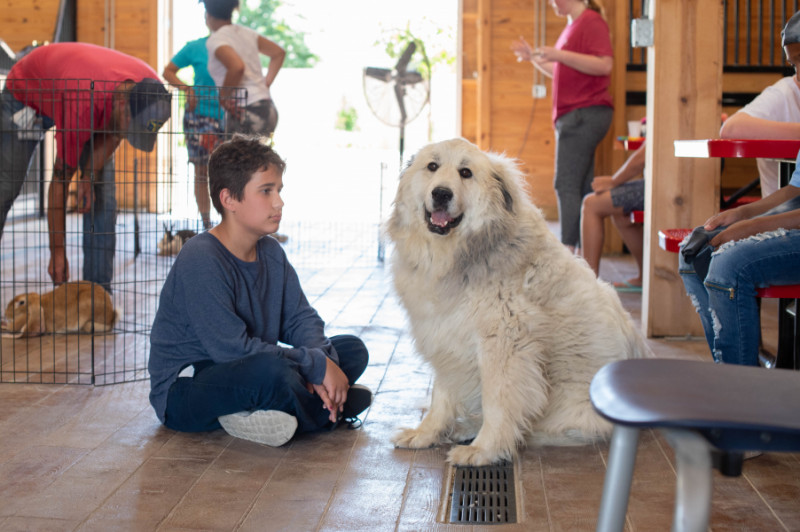By Sydnee Shive on July 13, 2021
Not a Typical Ranch
Kansas school implements the Ranch to help children with disabilities learn about agriculture
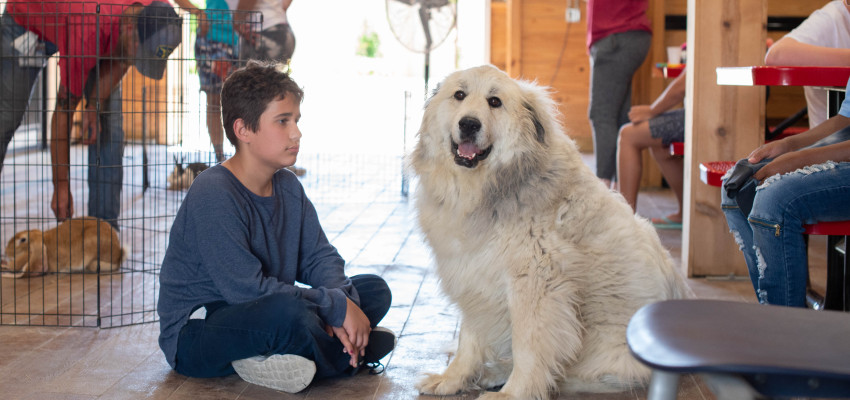
Ranching looks a bit different at the Lakemary Center in Paola. 'The Ranch,' as it's affectionally called, is home to a little of everything, from rabbits and pigs to turtles and goats. The Ranch has a variety of uses at Lakemary, but therapy and agriculture education are two cornerstones.
"The focus of our agriculture education program is to help the kids find out where their food, fiber and fuel comes from," Patricia Wolfe, Ranch Coordinator and full-time special education teacher, says. "Our secondary reason is appreciation for the outdoors and nature."
Lakemary is a nonprofit that's been providing day and residential services for children and adults with intellectual and developmental disabilities for more than 50 years. Around 200 special needs students ranging in age from 6 to 21 attend Lakemary's fully accredited, year-round school. Students come from across the country, and as far away as Alaska and Hawaii.
"A lot of our kids have an aversion to school. Just by the nature of their disabilities, they've not had success in school,” Wolfe says. "They think school is 'sitting down, pencil, paper; I have to pay attention and be quiet.' But they find out school can be fun, and school can be hands-on, and school can be a relaxing and a safe place."
The Ranch features a large barn with four stalls and is home to a miniature horse and two dogs. The barn has a classroom area, multiple auxiliary learning spaces, a bathroom and office space. The surrounding land includes a certified outdoor learning site, greenhouse, compost bins and raised garden beds, along with a goat paddock, pig pen, chicken coop, rabbitry, butterfly garden and koi pond.
THE IMPORTANCE OF AGRICULTURE
Starting with a chicken coop, the creation of the Ranch was spearheaded by the late André Dight in 2016. Dight, the initial ranch manager, tragically died in a car accident in 2018. The barn is named in Dight's honor, and he played a vital role in turning the concept of a ranch into a reality.
Wolfe works with Lakemary staff to maintain the Ranch and host seasonal and daily activities. Wolfe holds degrees in both animal science and special education, and she's passionate about farming and agriculture education.
"Farming is near and dear to my heart,” Wolfe says. “To pass it along to others is important to me. It's fun for me to see even the staff here say, 'I had no idea' about some concept in agriculture,' and they'll go home, come back and say, 'My family didn't know that either!' The staff even have a greater appreciation for agriculture, too."
For many of the children and adults at Lakemary, their first visit to the Ranch is also their first time gardening, interacting with farm animals and learning the responsibilities that come with agriculture.
"We want the kids to understand when they see an egg, that the eggs don't originally come from a store, they come from chickens," Wolfe says. "A lot of kiddos have been around maybe dogs or cats but haven't been around farm animals. Many of them are a bit intimidated by the goats or the pigs or even the rabbits."
A SPACE FOR EVERYONE
Classroom time sometimes goes beyond agriculture. Wolfe and the Lakemary teaching team collaborate and put together lessons in math, literature, science and social studies.
"All of our kids come out two times a week for half an hour and we have class," Wolfe says. "They get an hour every week of learning about the animals, plants and caring for things, like putting mulch down in the gardens, planting flowers and taking care of the chickens. Anything we do out at the Ranch, we want the kids to help."
At the Ranch, students can find hobbies and potential careers, from growing a garden and watering plants to taking care of animals. If they like to water plants, they can do that almost anywhere, whether it's at home or at a daytime job.
"It's not only therapeutic for them, but it's something they can do at their homes," Wolfe says. "They can go home, they can plant a small bean in a pot, they can plant a flower and they can help their parents. It's something they can learn and tell their parents about, and it's something they can do as a lifelong hobby."
The Ranch is a great place to recharge. Students, residents and staff can visit the animals, take a walk through the gardens and soak in the fresh air and sunshine.
"If you go outside and you see a furry little bunny or a dog, or you get in the pen and feed the goats, you just kind of forget about everything else for a while," Wolfe says. "The students really, really like it. Sometimes, if they're having a bad day, you can see their shoulders relax and their demeanor change."
CREATING A LIBRARY
In 2020, using a White-Reinhardt Grant from the American Farm Bureau Foundation for Agriculture, the Miami County Farm Bureau partnered with the Lakemary School to create a library of agricultural education books for a wide range of students. Some of their goals include introducing, educating and inspiring students on the physical and therapeutic value of gardening and horticulture, promoting lifelong lessons in social interaction with others, learning the importance of exercise and outdoor activities, proper treatment of animals and safe handling of food.
"Having the library on campus not only saves time and money, but it also increases the student's interest," Wolfe says. "We can say, 'Here, you can have this book and hold it in your hand, you can look at the pictures, the teacher can read it to you, you can read it yourself.'"
Although some students and adults at Lakemary have difficulty reading, the newly created library reaches individuals of all reading levels. Wolfe likes to use the books to reinforce class concepts. Students can read about chickens, visit their coop and then read about them again.
"After we read the book, and this is my favorite part of the whole grant, we can go do something with our hands," Wolfe says. "We can touch a worm, we can do the vermiculture (cultivation of worms), we can plant the seeds, we can pick the corn, we can go look at the chicken, we can pet the goats. At a regular school, you usually don't have chickens. You can see a picture, but there's nothing like seeing the actual thing."
LOOKING FORWARD
The future is bright at Lakemary and as agriculture continues to evolve, their library will be used for many years to come. Lakemary plans to hold an annual farm day, and their summer 2021 curriculum includes hosting special lectures over bee keeping, tractor exploration, horse education and soil conservation.
"I want to make sure and give credit where credit is due for organizations like the American Farm Bureau," Wolfe says. "They've been so valuable in providing resources, the books they have, the grants. I want to give credit to them for being extremely, extremely helpful, and I am very appreciative of that."
To learn more about Lakemary, visit their website.

